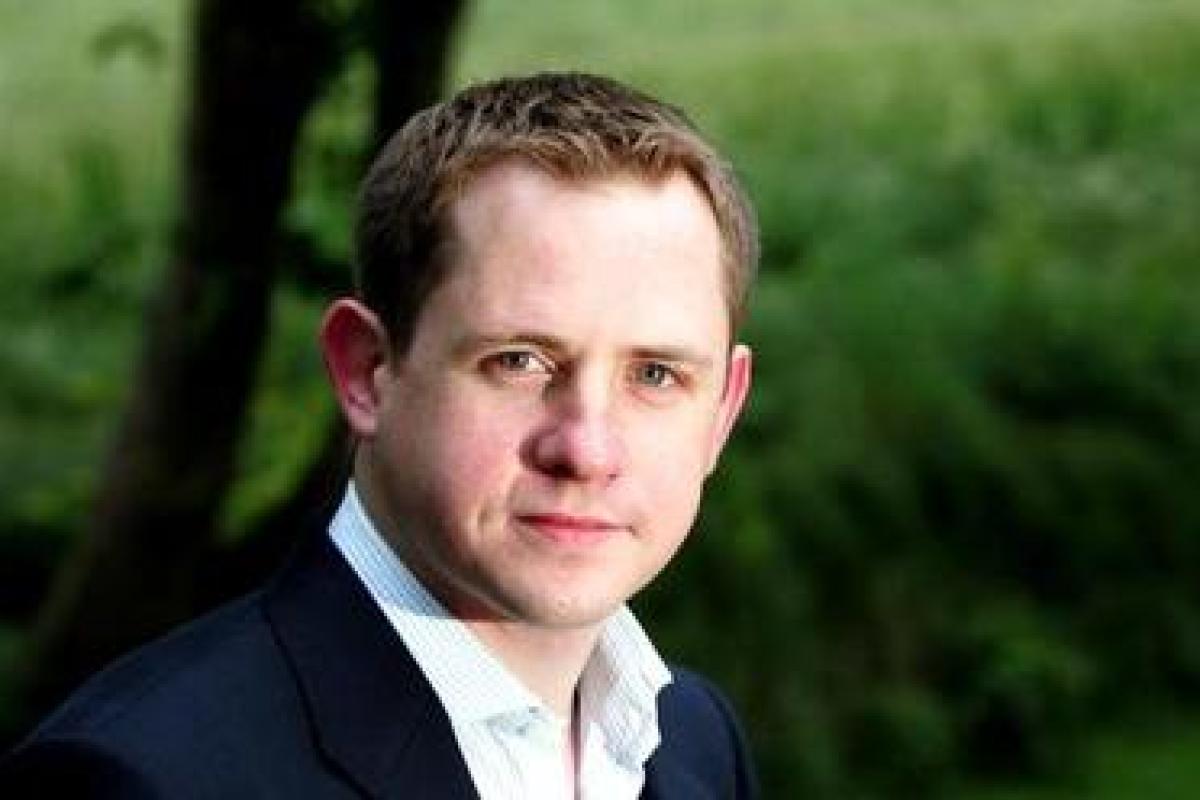Alastair Lukies, Group CEO, Monitise talks to The Marketing Society’s editor Elen Lewis about paying by mobile, the secret to getting a good idea off the ground and how he uses the skills he learnt from being a rugby player in business.
You’ve revolutionised the way people pay for everyday items. How long will it be before we’re all paying for everything using our mobiles?
The potential for mobile money is vast, and the channel is beginning to transform the way we bank, pay and shop. Smartphones and tablets are always on, so if you own one and keep it in your bag or your pocket wherever you are, as most people do, there are many things that you can do in almost any situation at the touch of a button. That opens infinitely more opportunities for people to spend, shop, invest, transfer funds, pay bills and dozens of other activities right around the clock at a time and place convenient to them. Mobile is also the only channel that bridges the gap between the on- and offline worlds: it allows you to be engaging in any type of online activity while still going about your daily life. Visa showcased latest payment innovations that are transforming the way people pay and manage their money at the London 2012 Olympic and Paralympic Games. Our strategic partner Visa Europe predicts that by 2020 more than half of all Visa transactions in Europe will be on a mobile device. We’re right at the beginning of a revolution when it comes to Mobile Money, at the edge of an industry which is set to explode.
What is the secret to getting a good idea off the ground?
There’s some golden advice regarding good ideas: consumers are only going to change their ways for something that is ten times better. If the improvement is not as significant as that, then it may not be worth doing. ‘Just about as good as alternatives’ are not good enough. Also, explain your vision to people you trust and accept their criticisms. A lot of entrepreneurs or innovators feel they have a fantastic idea, but no one else gets it. If that’s the case, it’s probably not the game-changing idea you might think it is.
Who has been your biggest influence?
There have been many. I am supported by the wise advice of my Chairman, Duncan McIntyre, who built Morse Group from a small UK reseller into a global operation. I think that my style is summed up by David Ogilvy’s famous quote: “If each of us hires people who are smaller than we are, we shall become a company of dwarfs. But if each of us hires people who are bigger than we are, we shall become a company of giants.” If you look at Monitise’s advisory and non-executive boards, for a company of our size, we would be the envy of most FTSE 100s. They include Peter Ayliffe, president and CEO of Visa Europe, Sushovan Hussain, Autonomy’s chief financial officer for almost a decade, Elizabeth Buse, head of Visa’s international operations, and mobile industry veteran Colin Tucker.
Are there skills and strategies you’ve taken from your former career as a rugby player into your business life?
Definitely, you can draw lots of parallels. Trusting the rest of the team, focussing on your specific area and having faith that your team members are focusing on theirs is a big one. I also think that only you know how hard you train, so you shouldn’t look for other people to rub your back and say you did a great job today. And the same rules apply in rugby and in business for the need to be humble. If you try and do and retain everything you absolutely will fail, so being prepared to share your load, and therefore the upside, is critical.
What are the qualities of a strong leader?
Flexibility. Being able to be adapt an approach to each business challenge in order to ensure that you get the right product or service to the right customers is vital. Being amenable to advice is important. You should accept and learn from criticisms from the people you trust, and surround yourself with people smarter than you - as many good advisors and good people as you can find.
Can people be trained in entrepreneurship or is it something you’re born with?
Anyone can be an entrepreneur – it is just vital that you have drive, ambition and are extremely motivated. You need to have the commitment and determination to see the venture all the way through. Entrepreneurialism is not just about start-ups. It is a state of mind. If a way to achieve something is written in a book then anyone can read it and act on it. Entrepreneurialism is a combination of constant hard work/endeavour combined with calculated risk taken on a regular basis.
Alastair Lukies is speaking at The Marketing Society Annual Conference on 28 November at the Royal Opera House.
Read more interviews with our Annual Conference speakers.
